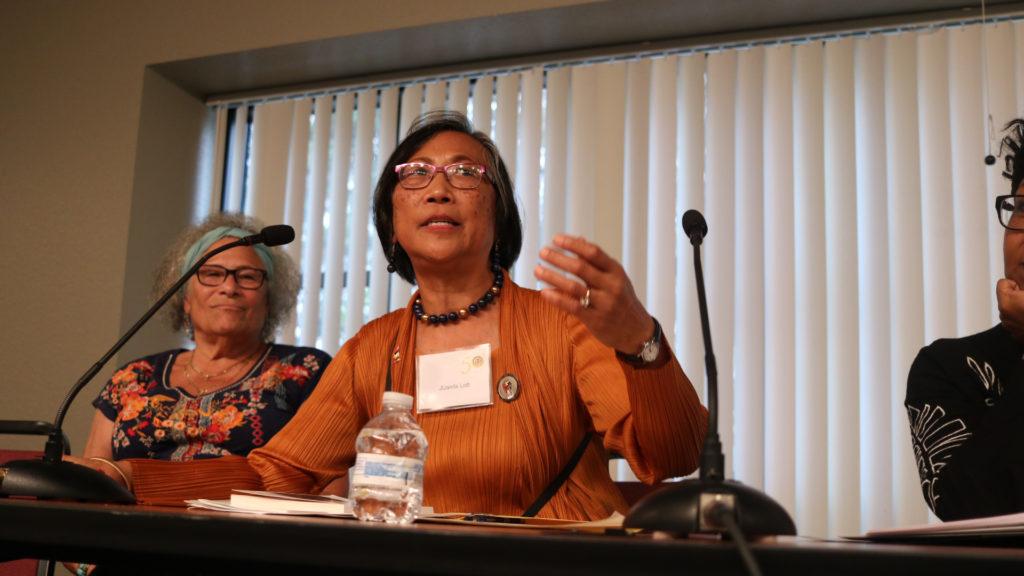All SF State students “should fight like hell” to keep the department of Ethnic Studies alive and a priority at the university, said Harvey Dong, one of the three panelists at a 50th anniversary celebration of the landmark 1968 SF State student strike.
Titled “Reflections on the Legacy of the Black Student Union/Third World Liberation Front,” the discussion was held at the Tower Conference Center at SF State on Friday, Nov. 9.
The panel featured Dong along with former SF State librarian and strike archivist Helene Whitson, and former strike organizer Juanita Tamayo Lott.
Dong is a UC Berkeley Department of Ethnic Studies professor specializing in Asian American Studies. He’s also the publisher of Tamayo Lott’s new book, “Golden Children: The Legacy of Ethnic Studies.”
He said the strike was influential in San Francisco and acted as a pioneer for all other schools.
“Just thinking about the about the strike at SF State and the influence on Berkeley, I’d say that the [Third World Liberation Front student organization] at SF State was the teacher,” he said.
He said the action at SF State was like a “strike wave” that kept moving across the country. On Berkeley’s campus, students would get together and share knowledge and information inspired by the SF State student demands.
Dong recalled an occasion at a UC Regents meeting when then-Gov. Ronald Reagan gave a group of demonstrators the finger, which fired everyone up even more.
“When you deal with power you need politics,” he said.
Tamayo Lott was featured in the documentary film “Agents of Change,” which depicts the 1968 students strikes at SF State and Cornell University. She has been traveling to different campuses sharing her story and her new book — most recently visiting UCLA.
“UCLA said if it wasn’t for SF State they wouldn’t be who they are,” she said.
Tamayo Lott also stressed the importance of veterans encouraging young people.
“We as elders have to support our children and grandchildren in innovative ways,” she said.
The speakers said they look forward to seeing what the next generation of students can accomplish.
“It was the students at that time that knew we needed change,” Whitson said. “It changed American hierarchy education.”
Whitson is an Emeritus University Archivist and compiler of SF State Strike Coalition. She was working as a librarian at SF State at the time of the strike.
She recalled what it was like seeing so much police brutality, like a war between students and law enforcement.
“It was really disheartening,” she said.
Whitson and her husband began collecting any memorabilia at the time, and would eventually become strike archivists. She said she has drawers filled with newspapers, papers that people had posted on campus about the strike, and even flyers with footprints on them.
In 1999, she conducted a week of interviews with students, faculty and union workers who participated in the strike.
A collection of archives can be found in the University Archives and Historic Collections at the SF State library.





